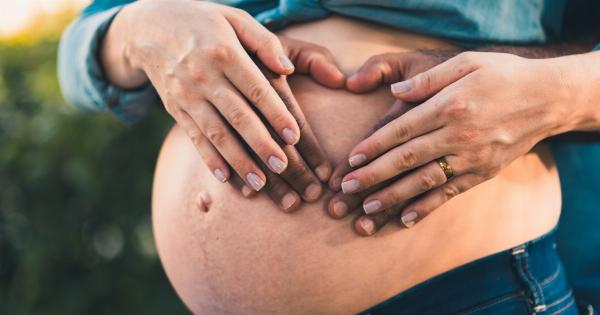Discovering that you are pregnant can be both exciting and overwhelming. If you are trying to conceive or suspect that you may be pregnant, there are some signs to watch out for.
Missed Period
One of the most common signs of pregnancy is a missed period. If you have a regular menstrual cycle, a missed period could indicate that you are pregnant.
However, there are other reasons for a missed or delayed period such as stress, weight fluctuations, hormonal fluctuations, and more.
Positive Pregnancy Test
A positive pregnancy test is the most reliable sign that you are pregnant. A pregnancy test detects the presence of human chorionic gonadotropin (hCG) hormone in your urine. This hormone is produced when a fertilized egg implants in the uterus.
A home pregnancy test can be taken at least a week after a missed period for accurate results.
Spotting
Some women may experience light bleeding or spotting when a fertilized egg implants in the uterus. This is known as implantation bleeding and can occur a week or two after conception.
This bleeding is usually lighter and shorter than a regular period and may be accompanied by mild cramps.
Changes in Breasts
Another sign of pregnancy is changes in the breasts. The breasts may become sore, tender, swollen, or sensitive to touch due to the hormonal changes. The nipples may also darken and the areolas may become larger and more prominent.
Nausea and Vomiting
Nausea and vomiting are common signs of pregnancy and are commonly known as morning sickness. This condition may occur at any time of the day and may range from mild to severe.
Morning sickness usually starts around the 6th week of pregnancy and may subside by the 12th week.
Fatigue
Feeling tired and exhausted is another common sign of pregnancy. The simple act of growing a baby demands a lot of energy from your body resulting in fatigue. Hormonal changes, sleep disturbances and low blood sugar can add to your feeling of tiredness.
Increased Urination
During pregnancy, your body produces more blood which ultimately filters through your kidneys making you urinate more frequently.
This will add to the pressure on your bladder, resulting in more frequent trips to the bathroom, especially in the first trimester of pregnancy.
Food Cravings and Aversions
Food cravings and aversions are common signs of pregnancy. Some women may crave foods they don’t like, while others may crave foods they don’t normally consume. This sign is thought to be due to the hormonal changes occurring in your body.
You may also have a loss of appetite in the first trimester, and a craving for spicy or sour foods in the second trimester.
Mood Swings
Because of the changes in hormones, mood swings are common during pregnancy. You may feel emotional, irritable, or even depressed. Try to get support from your partner, friends, or family to help you through this phase.
Abdominal Cramping and Bloating
Abdominal cramping and bloating are normal signs of pregnancy, and are caused by the uterus expanding as the baby grows. Some women may feel mild cramps similar to menstrual cramps.
However, if the cramping is severe or accompanied by bleeding or spotting, it is advised to see your healthcare provider.





























